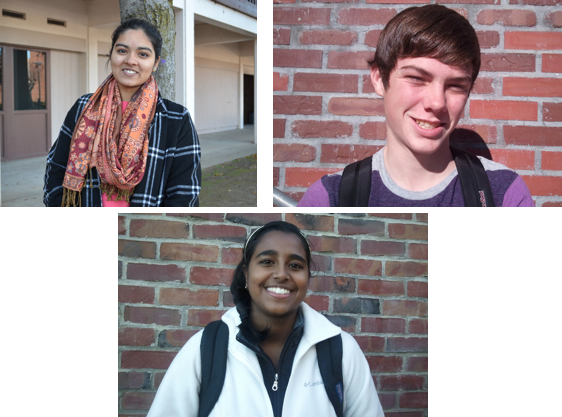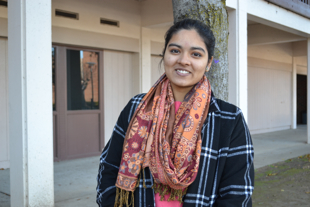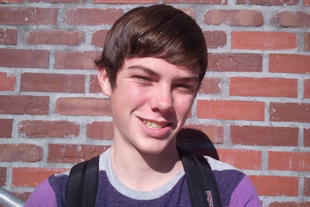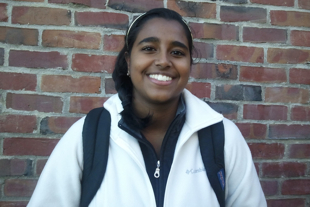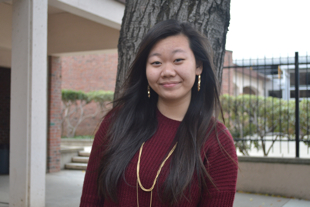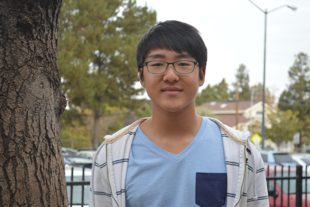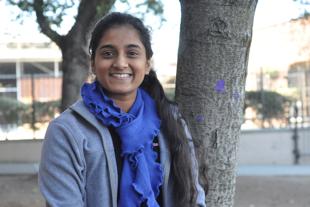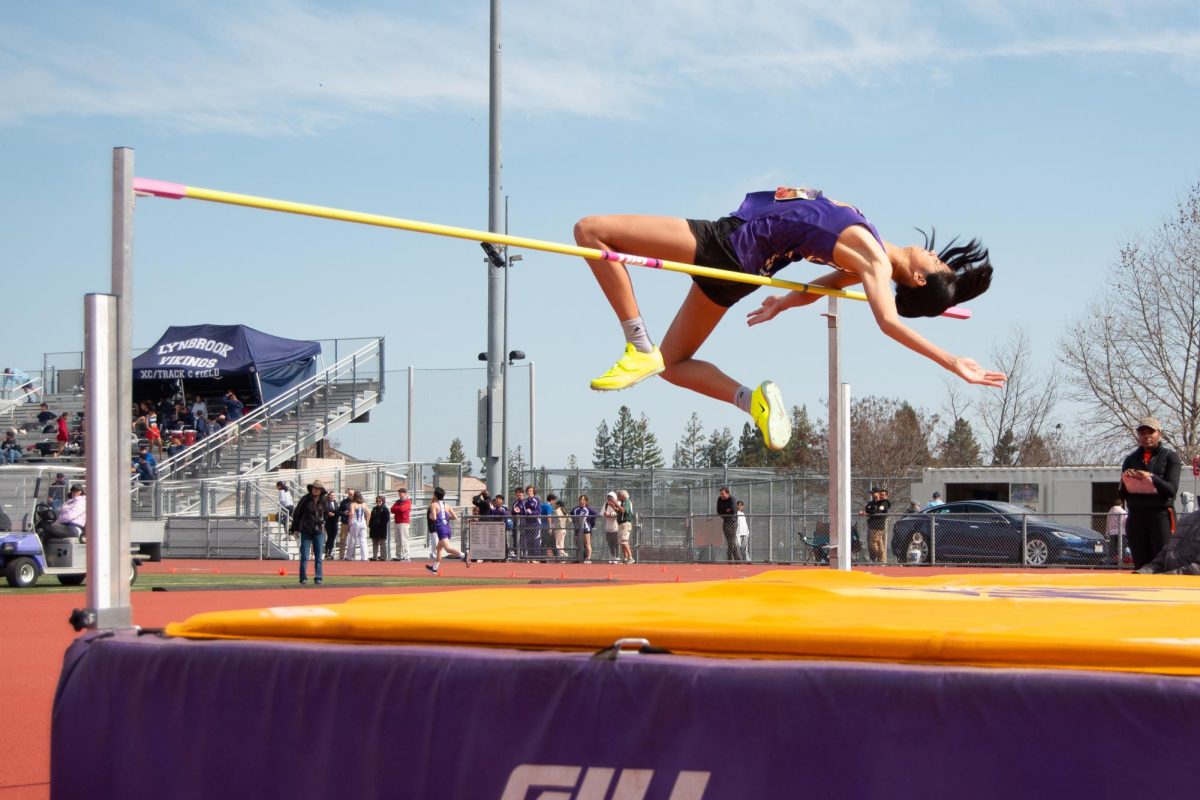Volunteering experiences teach students lessons they could not have learned elsewhere.
Click a photo to read a story.
30 hours, lifetime memory
SENIOR SRAVANI YAJAMANAM
Thirty hours without food. For teenagers, with their notoriously insatiable appetites, it seems like a rather ambitious feat. Senior Sravani Yajamanam, Interact Co-International Night Chair, agrees.
“Every single one of us [in Cupertino] has food,” Yajamanam said. “When we go home, we have snacks. When we go to lunch, we have money to buy anything we want.”
Each year, Interact partners with World Vision to host the annual 30 Hour Famine to raise awareness for world hunger. Throughout the 30 hours, students gather donations that are eventually sent to World Vision. Yajamanam participated in her sophomore year.
“When you have the opportunity to get what you want, and suddenly that is taken away from you — for 30 hours — you realize the meaning behind it,” Yajamanam said.
For Yajamanan, it was a life-changing experience, but definitely not an easy one. Besides the actual physical strain involved in fasting, the temptation to cheat was hard to resist.
[quote_right]”When you have the opportunity to get what you want, and suddenly that is taken away from you — for 30 hours — you realize the meaning behind it.”[/quote_right]
MVHS students are not alone in the challenge. The 30 Hour Famine is a global event; thousands of students around the world unite in their efforts. According to Yajamanam, although the students are not together physically, they feel connected.
As an officer of Interact, Yajamanam has participated in many community service events. But what made this event particularly significant for Yajamanam was the struggle involved. Rather than clicking away on a computer or watching charity video campaigns online, she took action. And she succeeded.
“Knowing that you gained money, knowing that you raised awareness, knowing that there are people all around the world doing the same thing as you, and knowing that you’re all on the same boat — that was the most awesome part about it,” Yajamanam said.
Yajamanam participated not only for the hungry, underprivileged communities, but for herself as well.
“It was right at that point where I was feeling a little bit down … about my grades, about extracurriculars, about how much stuff I have to do,” she said. “[I wanted] to see if I can actually do something if I set a goal. And once I hit that 30 hour mark, once I finished the famine, I felt really good about myself … You feel like you can do anything.”
How one key made a big difference
JUNIOR JUSTIN FELL
Tijuana, Mexico is a city of contrasts. On one side is the picturesque coast, lined with tall skyscrapers and majestic houses; on the other, little shanties litter the landscape, one next to the other with trash piled up on the street.
Junior Justin Fell experienced this other side of Tijuana when he went with the Saratoga Federated Church to build homes for underprivileged families last summer.
Fell experienced a world completely different from his own. He especially remembers handing a key to a small two bedroom home to a family in need. The house simply had cement floors and wood frame walls with stucco in netting.
For Fell, this experience was different from his other volunteering activities. He saw what it meant to be truly poor. He witnessed firsthand families who did not have a bed to sleep on or did not know where their next meal would come from. He met children who wanted a safe place to sleep, not the new iPhone; parents who cried tears of delight over a home that most people would never want to enter.
Fell had spent weeks working on the home with his church group. His friends, juniors Emma Murphy and Chris Choy, who went on the trip with him also helped, and were there when Fell handed the family the life-saving key.
“When you see them cry when you hand them the key to a tiny two room to what we would call a shack you … it’s wow,” Fell said.
Running him down the aisle
SENIOR ANU VAISHNAV
Senior Anu Vaishnav’s most treasured memory from her three summers spent at the Veterans Hospital is her encounter with a WWII veteran. He was an old man with tufts of white hair sprinkled on his head. He was not in a good physical condition either, being elderly and wheelchair bound, but according to Vaishnav, that didn’t stop him from having the energy of someone half his age.
Vaishnav was surprised that someone who went through the horrors of WWII had the same amount of energy and liveliness as as herself. His experience in war did not deter him from loving life.
[quote_left]”Woman you walk like a grandma, pick up your pace.”[/quote_left]
Vaishnav was assigned to wheel him from one part of the hospital to the other, a job she did often. She did not think much of it when she saw the aging vet in his wheelchair, wearing a bathrobe and hospital-provided socks with slip-on shoes, but as soon as she started wheeling him down the hall, she realized this was not going to be just another day at the Veterans Hospital.
“I had to go pick him up from one place and I had to take him somewhere and he’s like, ‘Woman you walk like a grandma, pick up your pace,’” Vaishnav said.
She picked up her pace, but the old man still wasn’t satisfied. He egged her on to go faster and faster and eventually, laughing as she picked up speed. Vaishnav decided to indulge him and broke into a run. She slowed down when she passed the police quarters, scared she would get in trouble, but the vet told her to keep going.
“They all know me here,” he said.
And so Vaishnav kept running. A policeman saw her going and smiled.
“So you got him, do you?” the policeman said.
Vaishnav kept running and the old vet cheered, having the time of his life. It was rare that he got to go on outings like these as he was kept in the hospital most of his days.
For Vaishnav it was all about putting a smile on the old man’s face.
“I’m walking everyday for them and for their memory,” she said.
Vaishnav returns to the Veterans Hospital because of the veterans she meets and the way they seem to exude life despite what they have been through. She hopes to honor their service with some of her own.
Lighting up another life
SENIOR LILIAN NGEOW
A group of volunteers stood expectantly in the lobby of Kaiser Permanente, waiting to discover what their job was going to be for the afternoon. They never expected that they would be playing with children.
Senior Lilian Ngeow, Project Manager of Leo Club, participated at an event at the JW House, a place for children diagnosed with cancer.
There were stations for arts and crafts, clay figurines, bounce houses, and ring tosses. But as soon as the kids came out to play, they turned their focus from the activities to the volunteers, playing tag and hide-and-seek.
“The kids chose to play with us instead of all the cool stuff out there,” Ngeow said.
[quote_right]“It’s [their] sense of gratitude that makes me want to keep volunteering.”[/quote_right]
Ngeow said that working with cancer patients made her see from their perspective. That day, she met two young patients, brother and sister. Despite the arduous everyday challenges of cancer, they maintained their smiles and a positive perspective. She talked to them about school, family and life in general. Due to their inability to leave the hospital very often, their life experience is very different from that of other children their age.
“You go to their level and understand their point of view and life experiences … It’s interesting,” Ngeow said. “It made me want to be like a big sister to [the siblings].”
The two siblings admitted that they weren’t able to go out a lot and they were often lonely, even if they had each other. They talked about what they went through, eyes shining with gratitude for Ngeow’s willing ears and company the whole time.
“It’s [their] sense of gratitude that makes me want to keep volunteering,” Ngeow said. “They don’t get out a lot because of their disease. We needed to make this a good experience for them.”
Towards the end of the event, the children asked the Leo Club members whether they’d be back the following year for the same event. Their eager expressions touched the hearts of the volunteers.
“It makes you think of other people more,” Ngeow said. “Volunteering…You’re always thinking for others rather than for yourself. With community service, you get to think about what other people really [need].”
The aspiring Eagle Scout
FRESHMAN JUSTIN YUN
Tenderfoot. Second Class. First Class. Star. Merit Badges. Popcorn sales. Camping.
These words and phrases mean something different to Freshman Justin Yun than they do to most people. They make up a part of his Boy Scout experience; yet a vital word is missing from the list. Volunteering.
Yun, as a Star rank in Boy Scouts, has been volunteering his entire life. He’s almost a Life Scout, and hopes to be an Eagle Scout by sophomore or junior year. To achieve the famous Eagle rank, Yun must meet all the requirements, including fulfilling the quota of community service hours and earning the merit badges by learning skills.
Yun also helped organize the Cupertino Teen Commission Giving Tree project. As both a Commissioner and a Boy Scout, he worked to host the project at a church. The project was mainly planned by the church members, and the goal was to allow kids who couldn’t afford it to experience Christmas by giving donations. Yun was a guide at the entrance, and also made decorated elf hats for the kids to wear.
[quote_left]”[For them] they’re luxuries, not necessities.”[/quote_left]
“It’s hard, but when you see their faces, it’s rewarding,” Yun said. “They’re happy about what we think of as necessities. [For them] they’re luxuries, not necessities.”
Yun witnessed the gratitude in their eyes and felt the appreciation from the kids. He was deeply touched to see people crying because they were overjoyed.
“They kept saying thank you over and over again, but in a way that feels incredibly genuine,” Yun said. “You know it comes from the bottom of their hearts. [It] was deep enough and strong enough to make a good impact on me.”
From this experience, Yun expanded his view of the world and gleaned an important lesson about appreciation.
“People are more unfortunate compared to teens in Cupertino,” Yun said. “We’re stressed out about school, but some children may not even be able to go to a good school like MVHS. No matter how competitive it is [and] though we complain often, I think we should reflect on the opportunities [others] can’t have.”
The old woman and her new granddaughter
JUNIOR MEGHA PRASAD
An empty hospital room, silent and suffocating, now rang with laughter and shone with the contentment of an elderly patient and junior Megha Prasad. The elderly woman was infertile, and had no children or grandchildren, so she was often lonely. Prasad bonded with her by sharing stories about the old lady’s life, hoping to alleviate her loneliness.
“I talked to her, and I taught her how to use a phone. We took Snapchats and selfies,” Prasad said. “It made me feel happy helping her, like I was almost her granddaughter. It felt good.”
Prasad initially started volunteering at the El Camino Hospital for community service hours to bolster her resume for college. Soon after she started, however, she realized there was more to her job than simple paperwork and signatures. After completing the work scheduled for the day, Prasad follows her uncle, a doctor, around the hospital and talks to patients. She gained an enthusiasm for the job stemming from her emotional attachment to the patients, which developed through interactions with them.
“I realized that helping patients is what I want to do,” Prasad said. “Before, I wanted to be a doctor because I thought it was a profession with a high salary. After I talked to the old lady, [I realized] this is actually fun. Talking to patients and helping them has really opened my mind.”
Her initial impression was that she would become a renowned surgeon, a distinguished profession that would require hours of hard work. These experiences give Prasad insight on what her future will be like if she pursues a career as a doctor instead of a surgeon.
“I wanted to be the best; it’s the Cupertino mentality,” Prasad said. “[But] now, I want to have an easier, more social life with my patients.”


